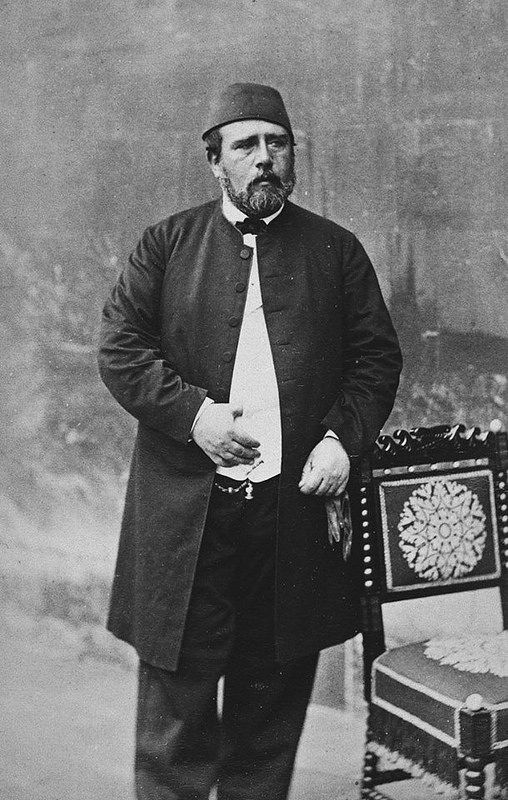 |
| Khedive Ismail |
Khedive Ismail was heir to the throne of Muhammad Ali and became khedive (viceroy) in 1863. A keen modernizer, Ismail had grandiose plans to modernize Cairo along French architectural lines as well as to Westernize Egypt.
Ismail was against the slave trade and extended Egyptian control in Sudan. During his reign the Suez Canal was opened with great fanfare as well as enormous expense to the regime. Ismail also initiated numerous irrigation projects and built lavish and costly palaces.
He used the increased profits from the sale of cotton, Egypt’s main cash crop, to finance his plans. Cotton prices soared when cotton from the United States became unavailable on the world markets owing to the Civil War. The khedive covered the cost
  |
Khedive Ismail was a progressive leader in Egypt, opposing slavery and seeking to modernize his nation. overruns by borrowing extensively from foreign banks, especially from the French. Once the United States reentered the market, cotton prices plummeted, and Ismail found his nation deep in debt.
He was forced to sell his Suez Canal shares (44 percent of the total stock holdings) at bargain prices to Great Britain, thereby giving Britain controlling interest in the Canal.
As the debts continued to grow, France and Britain established the Caisse de la Dette in 1876 to ensure repayment. Ismail was forced to abdicate in favor of his son Tawfik, a weak and malleable ruler, in 1879. Control over Egyptian debt repayment enabled the two imperial powers gradually to take over Egyptian finances and led to the British takeover of the country by 1882.